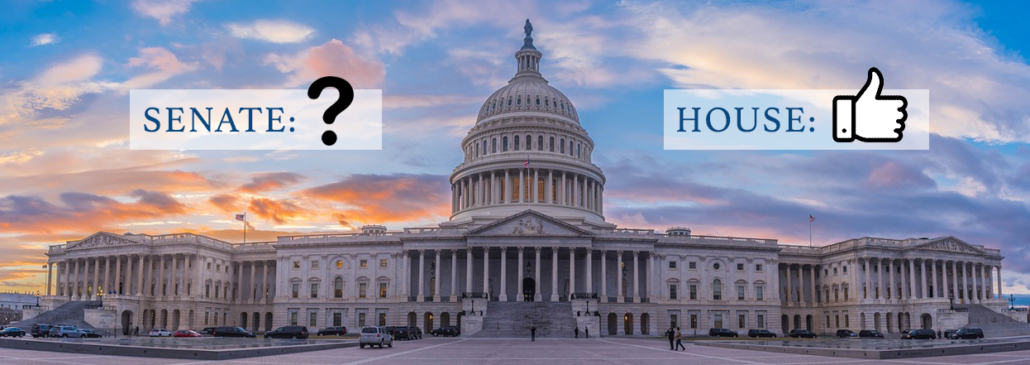
This year’s legislative session isn’t expected to have as many cannabis bills – or the drama (well, maybe) – as last year. But five new bills ranging from prohibiting employers from firing employees for using marijuana during off-hours to reducing felonies for criminal marijuana possession have been introduced. And bills addressing diversity in cannabis-industry ownership and statewide expungement of former marijuana crimes are expected in the near future.
Highlights of proposed legislation are below. For more detailed info on all cannabis-related bills, go here.
- HB 1080. Removes the requirement that managers and employees of a medical marijuana business or a retail marijuana business with day-to-day operational control must be Colorado residents when they apply for licensure.
- HB 1089. Prohibits an employer from terminating an employee for conducting off-duty activities that are lawful in Colorado even if those activities are not lawful under federal law.
- More info here »
- SB 016. Adds providing alcohol and the sale, dispensing distribution or transfer of marijuana or marijuana concentrates by an employee to a student to the parent notification requirements by schools.
 “High time” to legalize cannabis, says New Mexico Guv
“High time” to legalize cannabis, says New Mexico Guv
During her State of the State, New Mexico Gov. Michelle Lujan Grisham told lawmakers that legalization of marijuana provides a lucrative economic opportunity for the state and is supported by a vast majority of state residents.
New Mexico only has a 30-day session, so lawmakers need to hustle if they want to be the 12th state in the country to legalize cannabis for adult use.
And yes, she really did say that.
Where is the federal banking bill?
 U.S. Rep. Ed Perlmutter and three other congressmen who’ve been pushing to give cannabis businesses access to banking services sent a letter to the Senate Committee on Banking, Housing and Urban Affairs to address the chairman’s concerns about the Secure and Fair Enforcement (SAFE) Banking Act and urging him to take action.
U.S. Rep. Ed Perlmutter and three other congressmen who’ve been pushing to give cannabis businesses access to banking services sent a letter to the Senate Committee on Banking, Housing and Urban Affairs to address the chairman’s concerns about the Secure and Fair Enforcement (SAFE) Banking Act and urging him to take action.
The chairman, Mike Crapo of Idaho, recommended adding public health and safety requirements to the bill, including potency disclosures and a possible 2% THC limit on products before banks could do business with cannabis companies.
The representatives said they are hesitant to expand the scope of the bill, saying “we should exercise caution before adding limitations on the legislation’s safe harbor that impose unworkable burdens on financial institutions.”
Colorado Attorney General Phil Weiser and five other attorneys general also weighed in a separate letter to the U.S. Senate, stating “the SAFE Banking Act is a narrowly tailored solution that would provide immediate public safety benefits without supporting expansion of the existing cannabis industry.”
Read More »
What are the chances something happens this year?
Industry observers say it’s unlikely the Republican-controlled Senate will pass a major piece of marijuana reform this year, but they expect the momentum to continue.
More »

One example of why the cannabis industry needs banking
The number of break-ins at Denver marijuana businesses hit a three-year high in 2019, according to the Denver Police Department.
“We probably won’t see any relief in these kinds of robberies until these businesses aren’t forced to deal only in cash,” said John Goutell, general counsel for Frosted Leaf.









 Bob DeGabrielle, CEO of Los Sueños Farms, talked to Westword about the problems cannabis growers face when hit with severe and unpredictable weather. Growers aren’t allowed under Colorado law to move plants off the property during a weather emergency.
Bob DeGabrielle, CEO of Los Sueños Farms, talked to Westword about the problems cannabis growers face when hit with severe and unpredictable weather. Growers aren’t allowed under Colorado law to move plants off the property during a weather emergency.  Amen
Amen More taxes?
More taxes? Another first for Colorado
Another first for Colorado Move to overturn the will of the voters
Move to overturn the will of the voters
 A bill that aimed to protect employees from being fired
A bill that aimed to protect employees from being fired 


 U.S. Rep. Ed Perlmutter and three other congressmen who’ve been pushing to give cannabis businesses access to banking services sent a letter to the Senate Committee on Banking, Housing and Urban Affairs to address the chairman’s concerns about the Secure and Fair Enforcement (SAFE) Banking Act and urging him to take action.
U.S. Rep. Ed Perlmutter and three other congressmen who’ve been pushing to give cannabis businesses access to banking services sent a letter to the Senate Committee on Banking, Housing and Urban Affairs to address the chairman’s concerns about the Secure and Fair Enforcement (SAFE) Banking Act and urging him to take action.
 Superior town trustees on Monday unanimously voted in favor of an ordinance to allow both medical and retail marijuana to be delivered to residents.
Superior town trustees on Monday unanimously voted in favor of an ordinance to allow both medical and retail marijuana to be delivered to residents.